Pickleball, a sport that marries elements of tennis, badminton, and table tennis, has surged in popularity across the globe.
Its appeal lies in its simplicity, the minimal equipment required, and its accessibility to people of all ages.
But, can you play pickleball in the rain?
Well, many outdoor enthusiasts want to know the correct answer to this intriguing question, as weather can be a significant player in any outdoor sport.
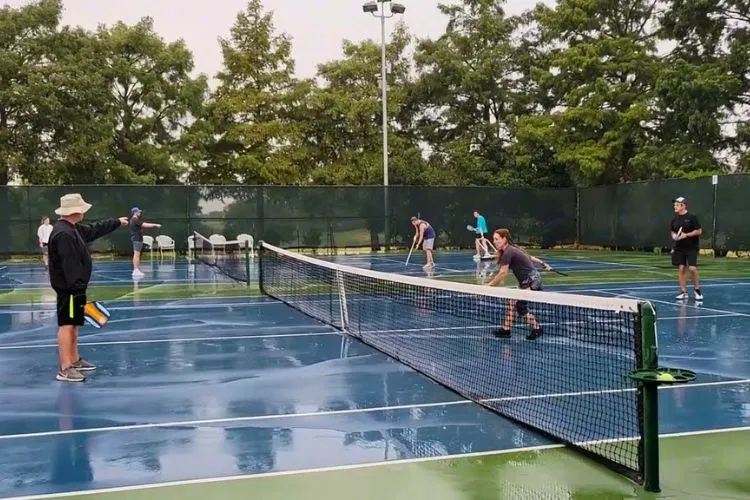
Weather dramatically influences outdoor sports, and pickleball is no exception. While sunny days are ideal, the sport doesn’t necessarily halt when clouds loom and rain begins to fall.
However, rain introduces new challenges, from slippery surfaces to changes in ball behavior.
Can You Play Pickleball in the Rain?
The short answer is yes, but with several caveats. While pickleball can technically be played in light rain, safety and court conditions become paramount considerations.
For instance, playing on wet surfaces increases the risk of slips and falls. Furthermore, water affects ball dynamics, making the game unpredictable and potentially more challenging.
Benefits and Drawbacks of Playing Pickleball in the Rain
Playing pickleball in the rain isn’t all doom and gloom. Indeed, there are advantages, such as cooler temperatures and less crowded courts, offering a unique playing experience.
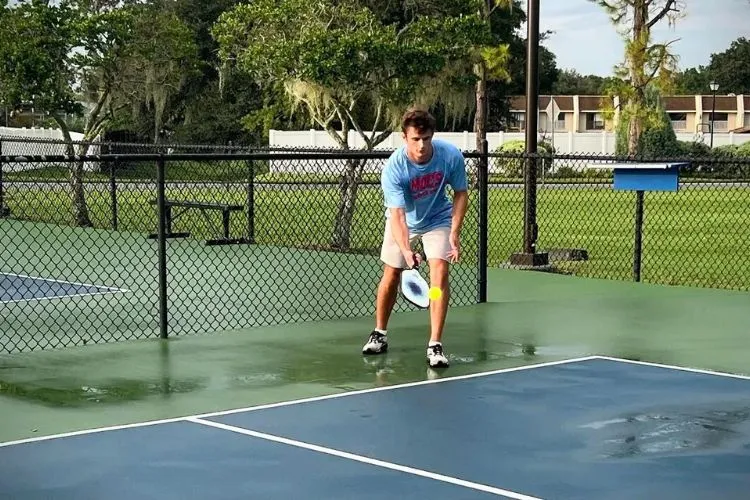
However, the drawbacks cannot be ignored. Slippery courts and wet equipment not only hinder performance but also increase the risk of injuries. Moreover, prolonged exposure to moisture can deteriorate your gear.
Tips for Playing Pickleball in the Rain
For those undeterred by a bit of rain, it’s essential to adapt your play and equipment for safety and enjoyment:
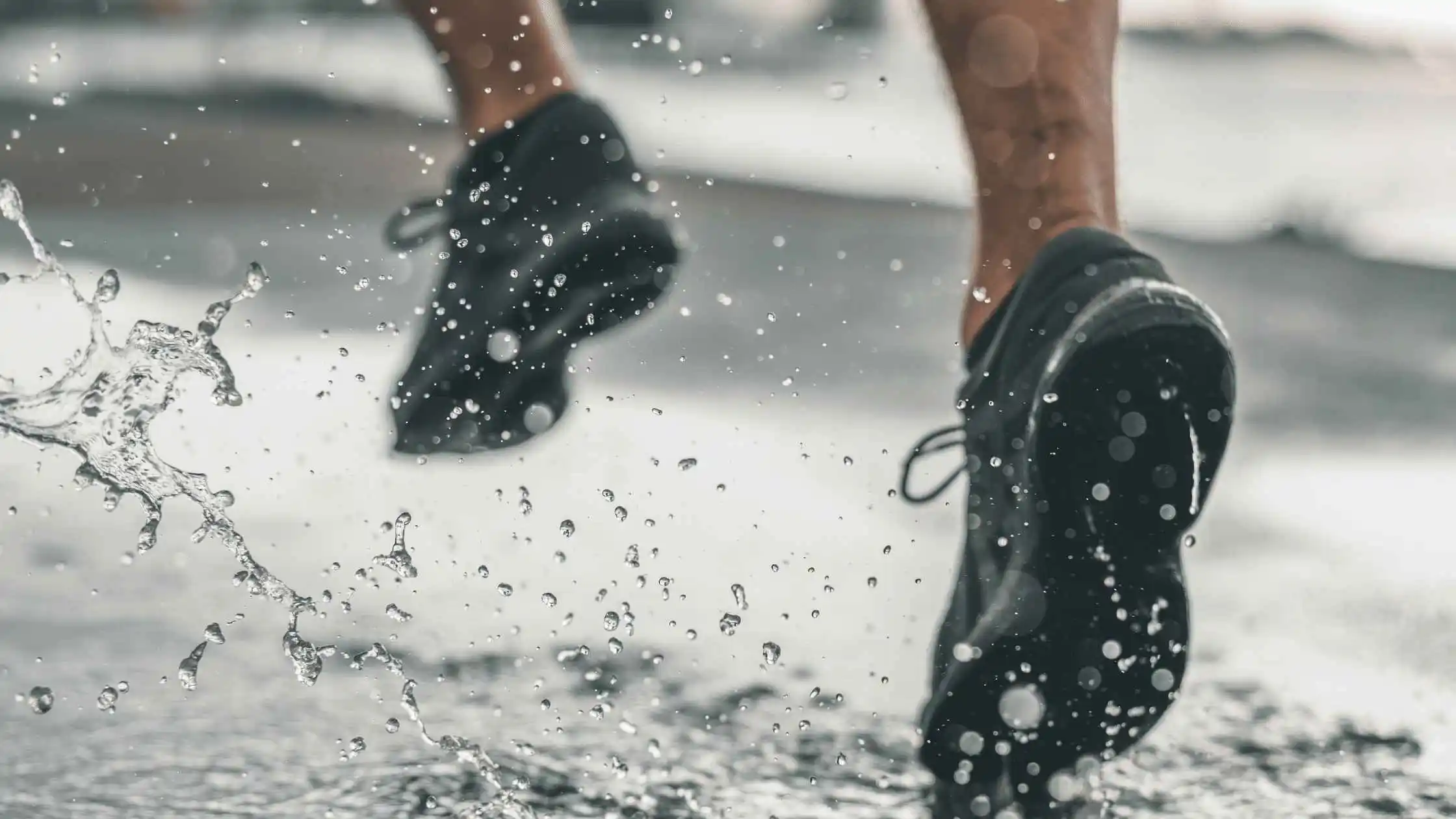
- Court Maintenance: Before playing, remove puddles and ensure the court’s surface has adequate traction. Some courts are designed with better drainage and textured surfaces for safer play in wet conditions.
- Equipment Choice: Use paddles and balls designed for wet play. Some equipment is made with materials that repel water or improve grip under wet conditions.
- Gameplay Adjustments: Modify your playing style to reduce injury risk. This means avoiding sudden movements and being more conservative with shots to maintain control.
Taking Care of Your Pickleball Gear Post-Game: A Comprehensive Guide
Proper maintenance of your pickleball equipment is essential, especially after playing in the rain. Without the right care, your gear may suffer from water damage such as warping, rot, and mold.
Here’s how you can ensure that your equipment remains in top condition even after being exposed to wet conditions.
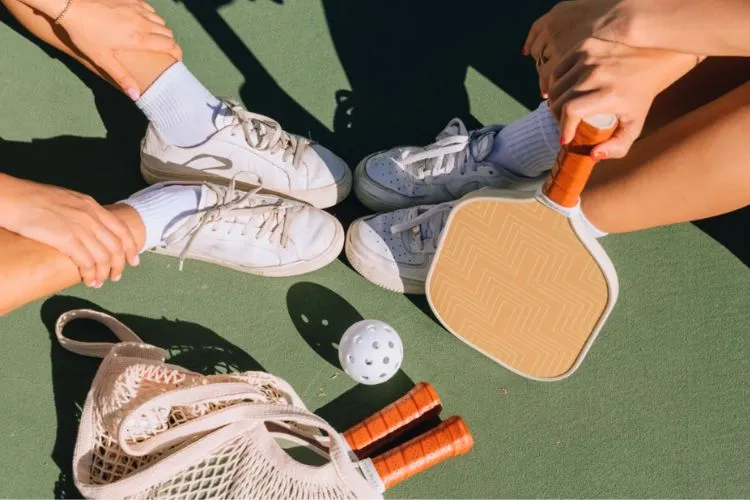
Drying Your Equipment
Paddles
- Let It Air Dry: After playing, wipe your paddle down with a dry towel to remove any excess moisture. Once the surface water is gone, leave it out to air dry completely, but avoid direct sunlight or heat sources, as these can damage the paddle’s surface.
- Handle With Care: If your paddle has a wrap grip, make sure to air dry the handle thoroughly. Moisture can seep into the grip and cause it to deteriorate or become slippery and less effective.
Balls
Pat Dry and Air Out: Balls, especially if they’re used in the rain, should be patted dry. Afterward, leave them in a well-ventilated area to air out to prevent the growth of mildew.
Shoes
- Remove Insoles: Take out insoles and laces and let them dry separately.
- Stuff with Newspaper: Stuffing your shoes with newspaper can help absorb moisture and maintain the shape of the shoes as they dry.
- Air Dry: Allow your shoes to dry naturally, away from direct heat or sunlight to prevent warping.
Storage Tips
Paddles
Store your paddle in a cool, dry environment once it is completely dry. Paddle covers can protect against dust but ensure they’re not sealed if your paddle isn’t fully dry to prevent condensation.
Balls
Keep the balls in a mesh bag or an open container, not in a sealed bag or container which can trap moisture.
Shoes
Once your shoes are dry, place them in an open area or use a shoe rack. Avoid plastic bags or closed closets which can be humid and encourage odors or mildew.
Regular Gear Check-up
Paddle Surface and Edge Guard
Inspect the paddle surface and edge guard for any water damage signs after it has dried. Water exposure can sometimes cause the glue to weaken, leading to delamination or the edge guard coming loose.
Grip Tape
Check the grip tape for wear and tear. Wet conditions can lead to faster deterioration. Replace the tape if necessary to maintain a solid grip.
Shoe Integrity
Examine your shoes for any damages. Look for signs of the outsole coming apart from the rest of the shoe or if the midsole has become too soft, which can affect your foot support and cushioning.
By incorporating these care steps into your routine, you can significantly extend the life of your pickleball gear and ensure that it performs well, game after game, rain or shine.
Remember, the little time you invest in post-game maintenance can save you money and inconvenience in the long run, preserving not just the playability but also the safety of your equipment.
Frequently Asked Questions (FAQs)
Is it safe to play pickleball in the rain?
Safety depends on the intensity of the rain and court condition. Light rain on a well-maintained court can be safe, but heavy rainfall significantly increases risk and should be avoided.
How can I prevent injuries while playing in the rain?
Preventing injuries starts with proper footwear. Shoes with enhanced grip can drastically reduce slipping. Additionally, warming up properly and making cautious gameplay adjustments are key.
What type of balls are suitable for wet conditions?
Choose balls specifically designed for outdoor play. These balls have holes that help mitigate some of the erratic behavior caused by wet conditions.
Are there specific court maintenance tips for rainy weather?
Yes, ensuring proper drainage and regular surface cleaning can make a difference. Additionally, using absorbent materials to remove puddles before play helps reduce slipperiness.
u003cstrongu003eCan rain affect the lifespan of my pickleball equipment?u003c/strongu003e
Yes, constant exposure to moisture can accelerate wear and tear on your equipment. Always dry your gear thoroughly after playing in the rain and consider investing in waterproof covers for storage.
Conclusion:
Playing pickleball in the rain presents a unique set of challenges and considerations. While it’s possible, prioritizing safety through proper preparation and modifications to gameplay is critical.
Remember, the joy of the sport stems not from where or when you play but from the game itself and the community it fosters.
Whether under the sun or amidst a drizzle, pickleball remains a testament to outdoor enjoyment and athletic endeavor. So, grab your paddle, take necessary precautions, and embrace the game — rain or shine.
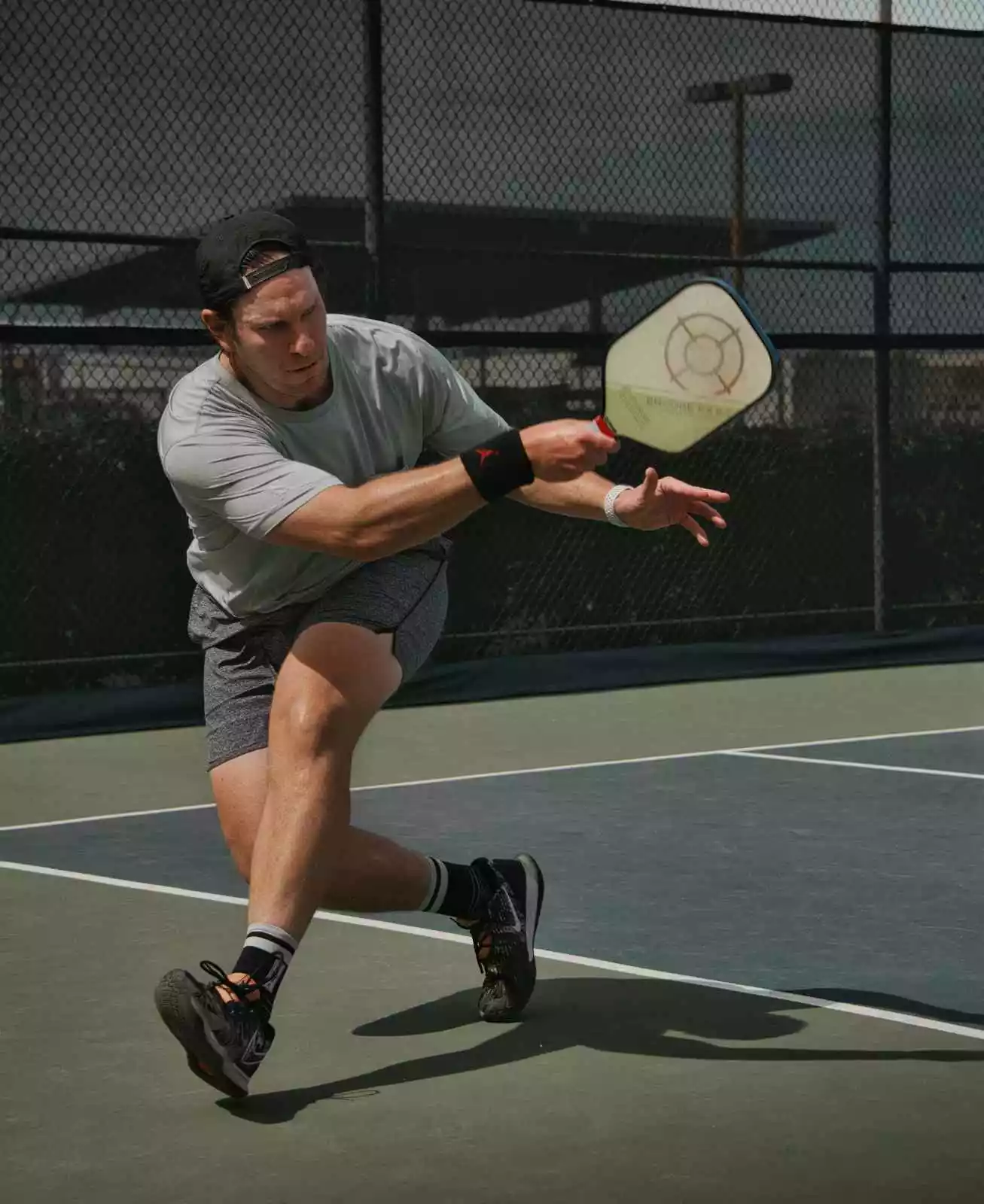
Pickleball’s more than a game to me—it’s a passion. I write, sharing its highs and lows, the thrills and the lessons. Some tales might draw you to the court, while others give a hint of the game’s magic. So, curious about my journey? Ready to dive deep into the world of pickleball with me? Let’s go.
